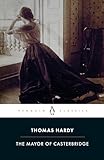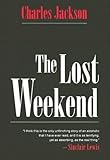This was my year of reading alcoholically. I didn’t plan it that way. But in book after book, the disease flourished and triumphed, not a recovery in sight.


 In Gerard Woodward’s remarkable trilogy (August, I’ll go to Bed at Noon and A Curious Earth) alcoholism (and some maternal glue sniffing) is not the unacknowledged elephant in the Jones family’s living room, it’s the unacknowledged elephant rampaging throughout their house and generations, not to mention the homes of near relations, and all the nearby pubs. Woodward’s depiction of a middleclass family riddled by unmitigated addiction is horrifying and hilarious, unsentimental and virtually untouched by medical or recovery jargon.
In Gerard Woodward’s remarkable trilogy (August, I’ll go to Bed at Noon and A Curious Earth) alcoholism (and some maternal glue sniffing) is not the unacknowledged elephant in the Jones family’s living room, it’s the unacknowledged elephant rampaging throughout their house and generations, not to mention the homes of near relations, and all the nearby pubs. Woodward’s depiction of a middleclass family riddled by unmitigated addiction is horrifying and hilarious, unsentimental and virtually untouched by medical or recovery jargon.
 The Mayor of Casterbridge by Thomas Hardy surely has one of the most astonishing first chapters in literature: Michael Henchard with his young wife and daughter come to a fair in a small town and decide to have a kind of milk drink. Michael pays extra to have his spiked, and proceeds in short order to get drunk and belligerent and then to sell his wife and child to the highest bidder! Sold! The next morning, the remorseful Henchard takes an oath not to drink for twenty-one years, but even abstinent he is the epitome of the dry drunk white-knuckling his way through life: he’s paranoid, self-important, has a terrible need to control; inwardly fragile, outwardly he’s a tyrant and a vengeful bully.
The Mayor of Casterbridge by Thomas Hardy surely has one of the most astonishing first chapters in literature: Michael Henchard with his young wife and daughter come to a fair in a small town and decide to have a kind of milk drink. Michael pays extra to have his spiked, and proceeds in short order to get drunk and belligerent and then to sell his wife and child to the highest bidder! Sold! The next morning, the remorseful Henchard takes an oath not to drink for twenty-one years, but even abstinent he is the epitome of the dry drunk white-knuckling his way through life: he’s paranoid, self-important, has a terrible need to control; inwardly fragile, outwardly he’s a tyrant and a vengeful bully.
 Henchard, though tragic, is a mild case compared to Frederick Exley, whose A Fan’s Notes is perhaps the first novelistic addiction memoir and remains a masterpiece of the genre. Exley’s book is a gorgeously written drunken quagmire; booze—and the New York Giants—are his only allegiances; his sense of entitlement, grandiosity and chronic lying are breathtaking. Incapable of keeping a job, he mooches off family and friends, abandons a wife, lives on his mother’s sofa, and rotates in and out of mental institutions. His courses of electric shock and insulin therapies, described in excruciating detail, don’t even begin to mitigate his alcoholism or wildly disordered personality. This book gave Exley some measure of what he thought all along was rightfully his: literary stature.
Henchard, though tragic, is a mild case compared to Frederick Exley, whose A Fan’s Notes is perhaps the first novelistic addiction memoir and remains a masterpiece of the genre. Exley’s book is a gorgeously written drunken quagmire; booze—and the New York Giants—are his only allegiances; his sense of entitlement, grandiosity and chronic lying are breathtaking. Incapable of keeping a job, he mooches off family and friends, abandons a wife, lives on his mother’s sofa, and rotates in and out of mental institutions. His courses of electric shock and insulin therapies, described in excruciating detail, don’t even begin to mitigate his alcoholism or wildly disordered personality. This book gave Exley some measure of what he thought all along was rightfully his: literary stature.
 I chased Exley with Charles Jackson’s The Lost Weekend, a slim and almost perfect novel whose alcoholic narrator, Don Birnam, goes on a weekend bender of such epic proportions and degradations, this reader was exhausted a quarter way through. It’s a laborious full time job to drink the way Birnam does. He must come up with money—the maid’s pay is easy pickings, it’s harder to cadge cash from the uptight neighbor, and pawning his brother’s heirlooms proves impossible (the pawnshops are closed for Yom Kippur). Birnam also jungle swings between grandiosity and despair, lies continuously, blacks out, passes out, falls down a flight stairs, spends a few hours in the alcoholism ward, breaks everyone’s heart. Yet, come Monday morning, he’s eager to start the whole cycle again.
I chased Exley with Charles Jackson’s The Lost Weekend, a slim and almost perfect novel whose alcoholic narrator, Don Birnam, goes on a weekend bender of such epic proportions and degradations, this reader was exhausted a quarter way through. It’s a laborious full time job to drink the way Birnam does. He must come up with money—the maid’s pay is easy pickings, it’s harder to cadge cash from the uptight neighbor, and pawning his brother’s heirlooms proves impossible (the pawnshops are closed for Yom Kippur). Birnam also jungle swings between grandiosity and despair, lies continuously, blacks out, passes out, falls down a flight stairs, spends a few hours in the alcoholism ward, breaks everyone’s heart. Yet, come Monday morning, he’s eager to start the whole cycle again.
It’s excessive, I admit, but I capped off this literary binge with Under the Volcano in all its lush, hellbent, whirlybending glory. Lowry—like Exley and Jackson—knew whereof he wrote. But this chronicle of the last days of Geoffrey Firman, a former British consul in Quauhnahac Mexico, is more interior, with a strangely hallucinogenic verisimilitude—the reader at times resides so deeply in the Consul’s consciousness, she feels drunk.
Enough! In all these books, alcoholism is the nightmare from which nobody wakes up. It wears a reader down. And incites some year-end gratitude for—knock wood—the tenuous, fleeting gift of a clear mind.








